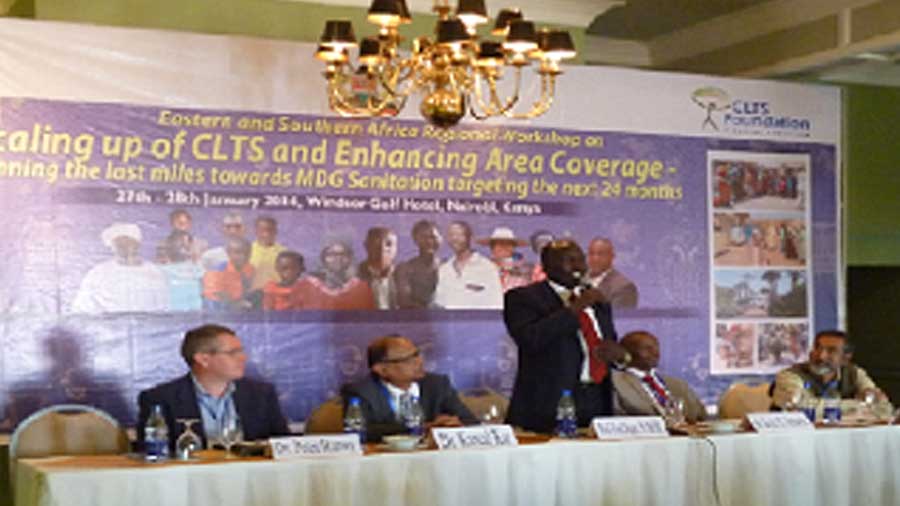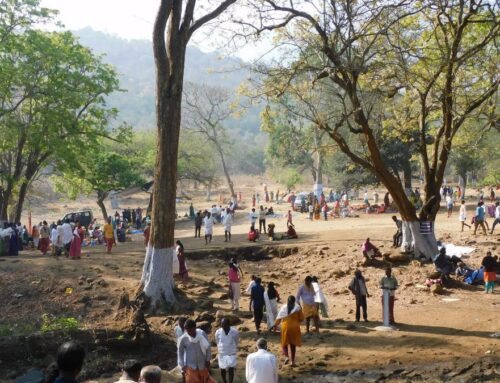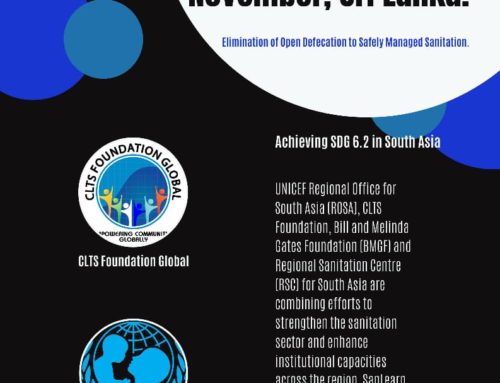Inaguration: 27th January was Day 1 of the Eastern and Southern Africa Regional Workshop on Scaling up of CLTS and Enhancing Area Coverage – Running the last miles towards MDG Sanitation targeting the next 24 months . The Introductory Session saw Dr Kamal Kar (CLTS Foundation), Shri Deepak Sanan (CLTS Foundation Advisor), Dr. Peter Harvey (Regional advisor, WASH, UNICEF Southern and Eastern Africa Region), and distinguished guests from host country Kenya, Dr. Kepha M Ombacho (Chief Public Health Officer, Ministry of Health), and Permanent Secretary of the Ministry of Health, Professor Fred Segor, setting the agenda alongside the 50-plus participants. Over the next two days, eight countries represented here will be reviewing progress with scaling up CLTS, drawing out the lessons learned, and reviewing and strengthening national plans to reach sanitation targets.
It was followed by-
Technical Session 1: Sharing of progress on CLTS by each participating country with reference to their MDG goals
Eight country representatives presented experience from their countries: Uganda, Tanzania, Somalia, Madagascar, Kenya, Ghana, Sudan and South Sudan. These illustrated a range of stages and levels of progress with CLTS from those in the early stages of designing and implementing a scaled up CLTS process, to some which now have two or three years of scaling up experience from which to derive lessons and recommendations.
Technical Session 2: Policy and strategies for CLTS implementation at scale
This session began the work of surfacing the details of country experience, pushing forwards discussion on two issues:
- What is the role of policy in creating the institutional environment in which CLTS can role out?
- What are the challenges and strategies for institutional collaboration? What is the effect of different funding mechanims on how the process unfolds and its success?
The example was given of Kenya which has a National Policy promoting CLTS, at the same time as succeeding in conceptualising sanitation as a public good with a necessarily collective component to action. Government commitment to this policy is also necessary – the policy has to have authority for implementation.
Institutional collaboration and co-ordination, it was agreed, is often a challenge, but can be greatly assisted by some types in-built mechanims in the implementing structure (as in Madagascar) as well as by continually creating opportunites for sharing, learning and building the involvement of a wide range of actors. Institutional triggering – a form of advocacy which uses CLTS triggering methods to provoke disgust and invoke commitment to change – was identified as a powerful tool to achieve alignment in approach and shared ways of working.




Leave A Comment